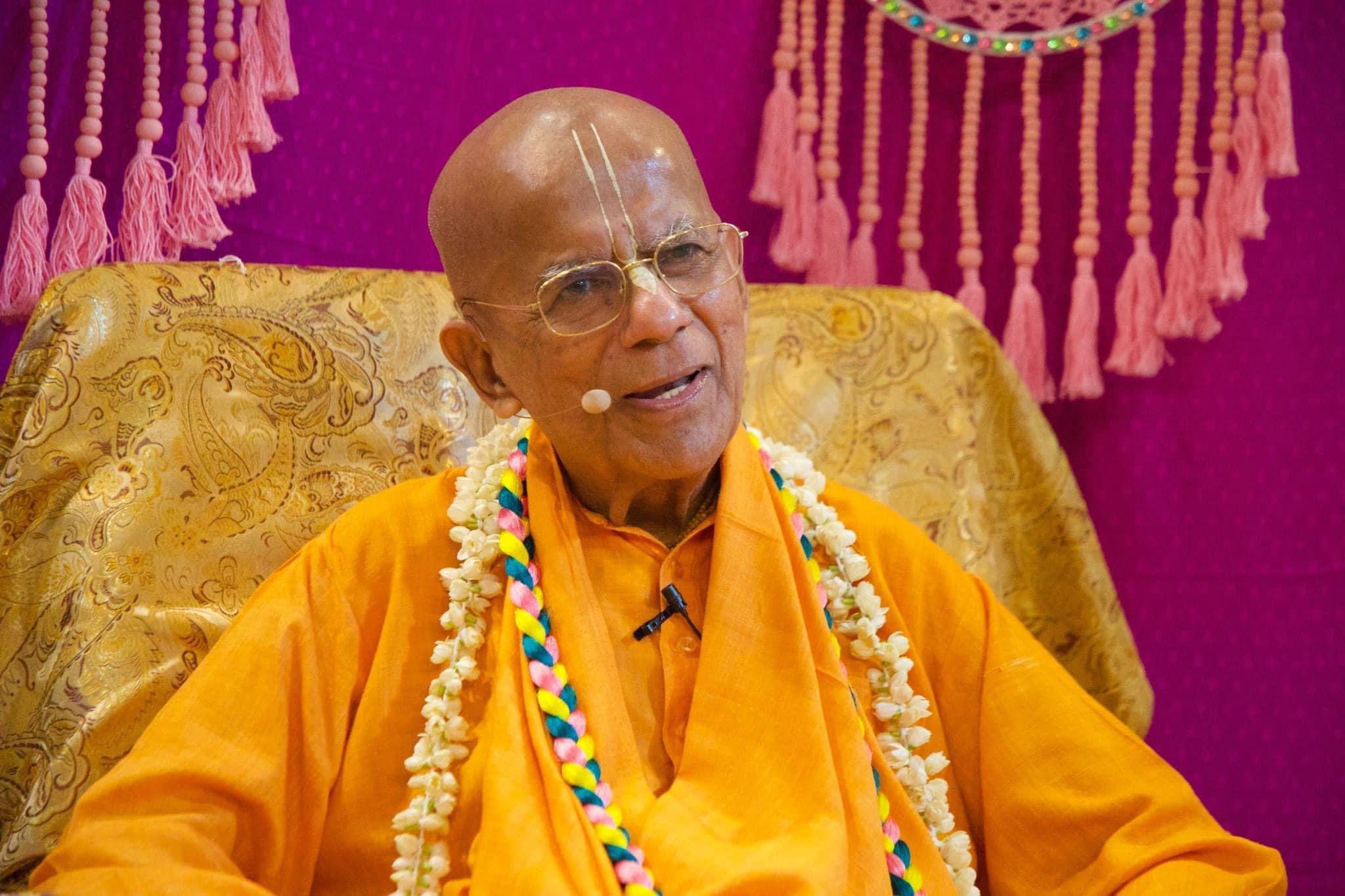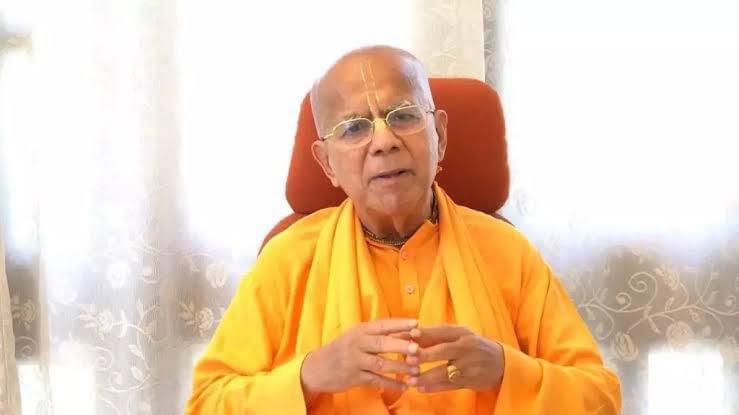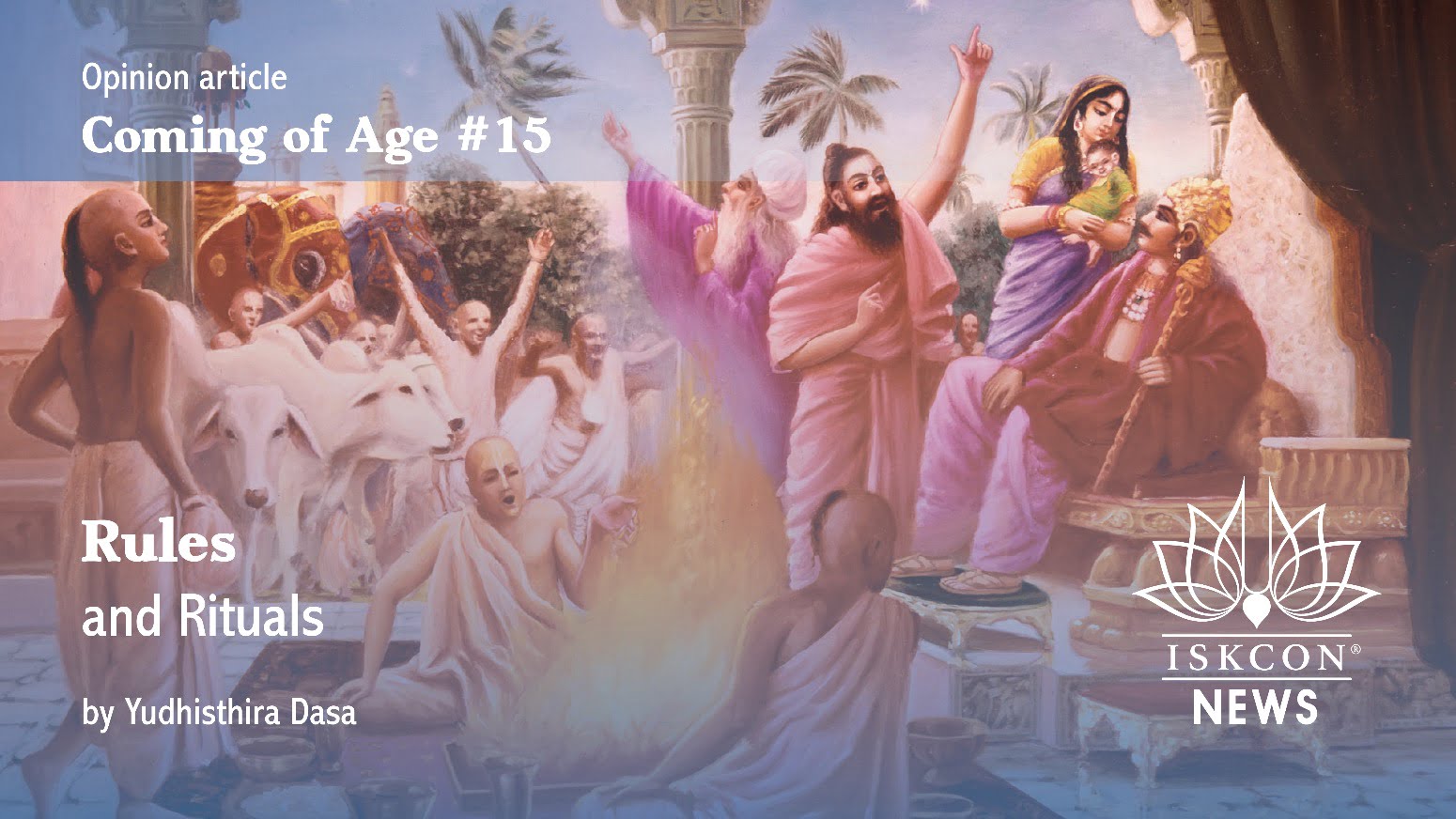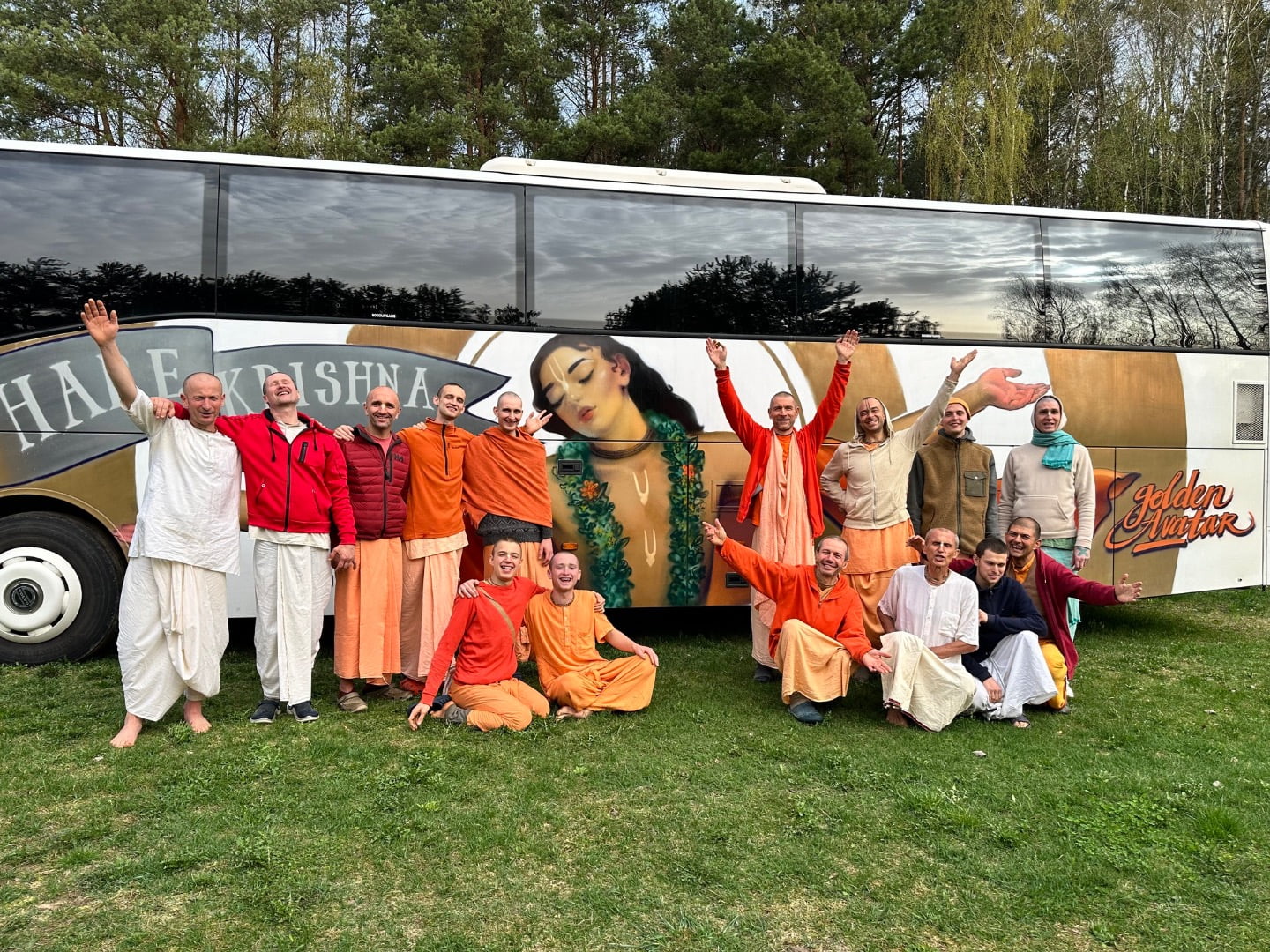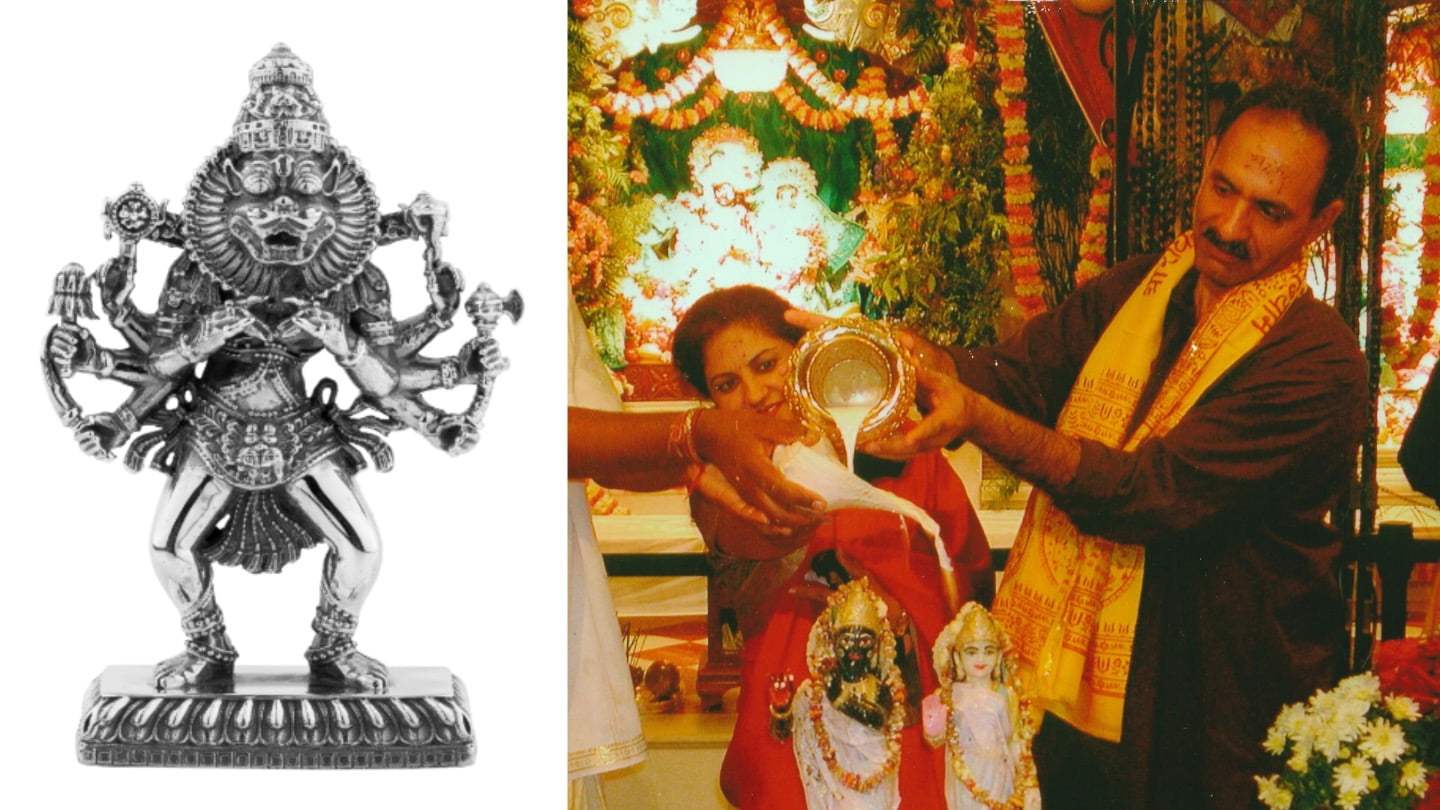Is Dharma the Same as Religion?
By Bhakti Raghava Swami | Mar 06, 2010
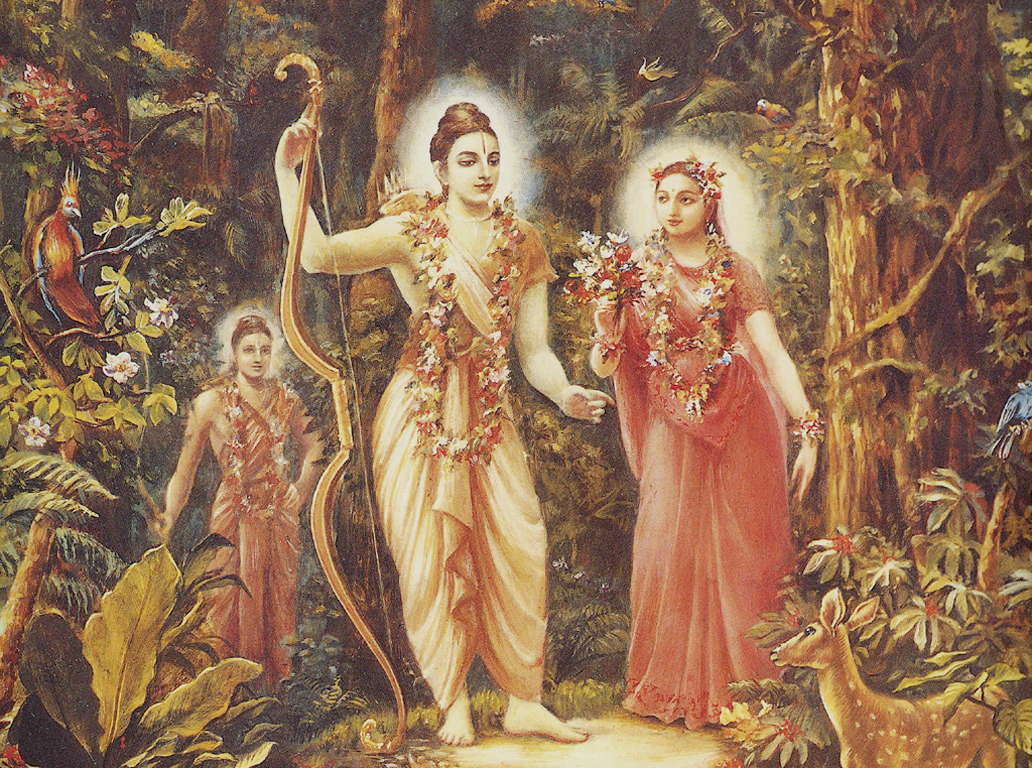
One of the great Indian saintly persons of the 20th century, Srila Bhaktisiddanta Sarasvati Thakura, Founder-Acarya of the well-known Gaudiya Math all over India and spiritual preceptor of yet another well renowned spiritual leader, Srila Bhaktivedanta Swami Prabhupada, the Founder-Acarya of the International Society for Krishna Consciousness [ISKCON], has given humanity a new dimension and deeper insight to the term religion when he explained that “philosophy without religion is mere speculation” while “religion without philosophy is but sentimentalism which sometimes leads to fanaticism”. According to Vedic scriptures, in particular Srimad Bhagavad-gita and Srimad-Bhagavatam, religion cannot be man-made. “Actually, the principles of religion can only be laid down by the Lord Himself. Dharmam tu saksad bhagavat-pranitam (SB, 6.3.19). No one can manufacture a religious principle by imperfect speculation. One must follow in the footsteps of great authorities like Brahma, Shiva, Narada, Manu, the Kumaras, Kapila, Prahlada, Bhishma, Sukadeva Gosvami, Yamaraja, Janaka, and Bali Maharaja.” [BG, 4.16, Purport].
By observation, we can see that over the centuries, the term “religion” has remained either a source of great inspiration for some, thus helping to bring peace and harmony in society, or has been a source of great anxiety for others; thus bringing disunity and disparity among individuals, communities and nations. This is largely because of man-made religious systems which are rampant in the present Age of Kali- the age of quarrel and misunderstanding. For most people, religion remains somewhat abstract, nebulous and difficult to define. However, religion can best be understood and defined when we consider the Sanskrit term “dharma”, an essential word in the Vedic literatures. Indeed, without understanding what is dharma in its deepest sense, even practicing devotees will tend to misjudge what is religion and what is not religion.
The beginning of this understanding comes when we master the ABCs of spiritual life. Without receiving this basic knowledge, it will remain very difficult for most people to understand what religion is. It will also remain impossible for people to put into practice the actual meaning of dharma. The five basic truths about religion or dharma are summarized in the perennial teachings of the Bhagavad-géta as 1) isvara [God, the controller], 2) jivatma [the spirit soul], 3) prakriti [the material nature], 4) kala [the time factor] and 5) karma [reaction to good or evil deeds]. Of these, the first four are eternal principles while the fifth one, karma, is temporary.
Religion as Dharma
Religion is generally defined and understood as some spiritual belief which is based on faith. We have observed that people sometimes change their faith, from being a Christian to becoming a Muslim, or from being a Hindu and becoming a Christian, etc. Dharma, on the other hand, refers to something which does not change because it is based on facts and reality which is further supported by philosophy and confirmed by scriptures, not simply by some belief which can change. Dharma refers to the original nature or character of something or someone. We can easily understand that all things have their natural characteristics which cannot be changed. For example sugar is sweet, that is its dharma. The moment sugar is no longer sweet, it cannot be called sugar. It may be white and looking very much like sugar, but if it has a different taste, it may likely be salt. If we take any object, it has a particular characteristic and that particular unchangeable characteristic is called its dharma. Similarly, we find that human beings have a natural character which is common to all human beings; by nature everyone has a propensity to love and to serve. Therefore, service is the common and universal dharma of all human beings; either service to the family, community or nation, but generally service to our own self. Dharma is thus known to be something common and universal to all living entities.
Religion is One
Because we are first and foremost spirit souls, aham brahmasmi, different than our physical or mental body, our first and superior nature is spiritual. Therefore, religion in its true sense refers to the natural identify and natural character of all spirit souls and is thus meant to be a common concept for all concerned. When we have that understanding, we can more easily accept the fact that religion, in its highest and purest expression, is one and universal. Due to lack of this understanding, we have created artificial differences between religious beliefs calling one group Christian, another Hindu, another Buddhist, etc. But since the spirit soul is of the same nature in all forms of life and at all times, the religion is also meant to be the same. Understanding and acting on the platform of our eternal identify as eternal spirit souls is the real religion.
Dharma as Dual in Nature, Spiritual, and Material
While dharma in its pure and highest expression in the spiritual realm generally refers to the duty or characteristic of the spirit soul, dharma in the material realm takes on a second meaning or dimension that of the natural and standard material duties of conditioned or embodied souls. Not only does one become a proper follower of dharma by awakening ones spiritual consciousness, Krishna consciousness, but also by acting according to the principles of material dharma. In the same way the spirit soul can best be situated and thus experience full happiness by acting on the natural platform of his eternal spiritual nature, i.e., of service to Lord Krishna. The conditioned soul in the material world can experience happiness by being situated on the platform of natural occupation [varnas] and in its natural spiritual divisions [asramas] as defined in the God-made system of varnasrama dharma:
catur-varnyam maya srstam guna-karma-vibhagashau
tasya kartaram api mam viddhy akartaram avyayam
“According to the three modes of material nature and the work associated with them, the four divisions of human society are created by Me. And although I am the creator of this system, you should know that I am yet the nondoer, being unchangeable.” [BG, 4.13]
Religion as Bhagavat Dharma and Varnasrama Dharma
Unless we understand both levels of dharma, 1) bhagavat dharma, refers to the duties of the spirit soul, i.e., pure devotional service to Lord Hari or Krishna, and 2) varnasrama dharma, refers to the duties of conditioned soul, i.e., standard and ideal activities connected with the body, we will not be able to properly discharge our spiritual and material duties. Religion in its fullest sense means acting properly both on the spiritual and material platform. To understand that dharma has a dual nature is easier than to understand that religion has two features- spiritual and material. Since religion is generally connected exclusively with spiritual activity, all material activities are generally regarded as not falling in the category of religion. To be religious means to practice some spiritual activity such as going to the church or mosque, synagogue, temple or wat. Religion is generally more closely connected with rituals and prayers which are often performed at specific times of the day and at particular places. However, the Vedic literatures teach us something else. Within the context of varnasrama dharma, guidelines are given to address both the material and the spiritual natures. We have our material duties called varnasrama dharma as well as our spiritual duties known as bhagavat dharma; we thus have our material religious duties as well as our spiritual religious duties.
Modern Day Deviations from Dharma
Modern day occupations connected with factory, industry and all kinds of recently invented hard technologies, have deviated mankind from his more natural occupations connected with land, cows, nature, and God. Modern day lifestyle in urban cities has also diverted mankind from his more natural and simplified living condition, within an agrarian based environment. This has brought about unprecedented imbalances in nature, in social conduct, and in mental outlook on life; resulting in increased disparities and anomalies at all levels. For those who understand the dual nature of dharma, the present way of modern life based on consumerism, competition for material acquisition and material well-being is but a major deviation from dharma. We need to clearly understand this. The remedy lies not in making adjustments through legislation, but in returning to the natural way of life- both materially and spiritually, as defined in our standard scriptures and as advocated by all the great spiritual leaders.
Dharma as Standard for Material and Spiritual Duties
In the same way that we can more easily understand that dharma is meant to cater to the duties and activities of both the body and soul, similarly, religion is also meant to cater to the duties and activities of the body and soul. Peace and harmony can only come when we are able to synchronize both levels of religion or both levels of dharma. When we deviate from the standard norm, as is the case in modern day society, we create what is called “varna sankara”, unwanted and unplanned population which makes for a chaotic society and where people are engaged in abominable activities called “ugra karma”. In a situation of “varna sankara” and “ugra karma” no one can be happy and satisfied because both the material and spiritual duties of persons are neglected. To rectify this chaotic condition, one must acquire proper knowledge so that one can begin to discriminate and not remain on the platform of sentimentalism and mental speculation. Our sastras give us clear understanding of our duties at both levels, one being devotional service to the Lord through devotional activities [bhagavat dharma] and the other being adhering to the principles of varna and asrama [varnasrama dharma]. Unless we take this up, there is no possibility of peace and happiness in this present chaotic world or in the next world.









